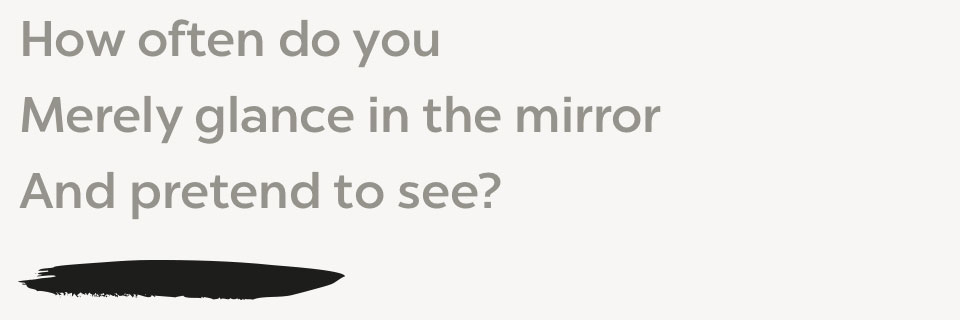First, I want to say that if you or someone you know are directly affected by the COVID-19 virus, my heart goes out to you. It’s causing a lot of pain in the world and part of that we can’t do anything about. There are precautions we can take, and I’m all for those. What’s interesting to me, though, is whether we can take those precautions from a place other than fear.
Every once in a while, we’re fortunate to witness fear operating on a large scale. It’s a powerful reminder to pay better attention to how fear surely operates in our lives more subtly.
There’s a lot we don’t know about COVID-19 and how it’s going to affect our world. Is that a good reason to be afraid? Not-knowing? That’s where we go, right? We imagine the worst when we don’t know, and then feel as if that’s happening. We hear the word “pandemic” and imagine the plague. What’s reality look like without fear?
The virus right now has an estimated mortality rate of 2-3%. This number can appear alarming when compared to the mortality rate of a typical flu (.1%), but keep in mind we have flu vaccines (estimated to be 50% effective) for vulnerable populations that push that number down.
If you look more closely at the data, you see that the mortality rate for people with no pre-existing conditions (like heart disease and cancer) is .9% (across all ages) Still, you might say, that’s nine times worse than the regular flu. Remember, we already have a vaccine for the flu that’s 50% effective, so it may be only five times worse. Still sound scary?
Here’s a bit of perspective on untreated mortality rates. The bubonic plague that wiped out half of Europe was 60%. HIV was 90% (and it didn’t care how healthy you were). Take a look at this table of mortality rates and see how far down the coronavirus is.
Notice at the bottom chickenpox in children has a rate .001% (1 in 100,000). The common flu is 900 times more deadly than the chicken pox! Do you see how easy it is to make ourselves afraid? Why do we do that? (I’ll answer this in my upcoming course)
By the way, your odds of dying in a car crash are 1%. Do you text while driving to increase those already high odds, maybe into coronavirus territory?
I swim long distances in the ocean. People often ask me if I’m afraid of sharks. The odds of being attacked by a shark are 1 in 3,748,067. In 2016, four people were killed by sharks, and seventy-three killed taking a selfie.
“Are you afraid of taking selfies?” is a better question since selfies are eighteen times more dangerous than sharks.
At least at the moment, if you’re in at least fair health and under seventy years old, you’re going to be okay. We’ve been through a lot worse than this.
I’m not saying this isn’t something to be concerned about, just not afraid. We’re conditioned to think that being afraid or worried is an appropriate response. It’s understandable, sure, but does it help? Let’s not conflate being careful and being afraid. Let’s be careful and unafraid. Doesn’t that feel more powerful?
What if we came from a place of responsibility and care, rather than fear? Care for the vulnerable. Be responsible for not spreading it. To do this without fear is not easy, but what a worthy challenge!
Still experiencing fear of the unknown? A meditation practice can do wonders. My next course, Meditation For Awakening: How To Get With Reality begins April 16. It’s a great time to become a dojo member.


